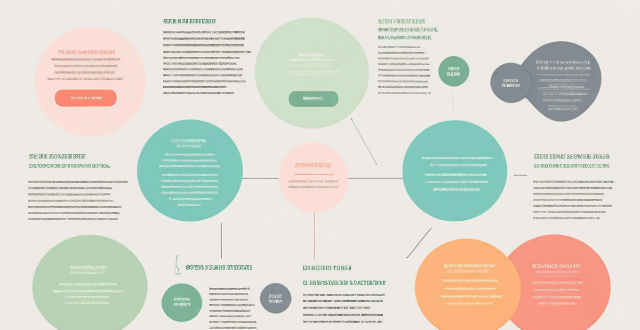Portfolio Rebalancing

What is the significance of rebalancing an investment portfolio ?
Rebalancing an investment portfolio is a crucial aspect of maintaining a well-diversified and risk-appropriate investment strategy. It involves periodically adjusting the asset allocation of your portfolio to align with your original investment goals and risk tolerance levels. The significance of rebalancing an investment portfolio includes maintaining diversification, controlling risk exposure, and staying disciplined. The frequency of rebalancing depends on various factors such as your investment goals, risk tolerance, and market conditions. Rebalancing an investment portfolio involves several steps, including determining your target allocation, evaluating your current allocation, selling off high-performing assets, reinvesting proceeds into underperforming assets, and reviewing and adjusting your portfolio regularly.

How do I create a diversified portfolio in the stock market ?
Creating a diversified portfolio is an essential strategy for mitigating risk and maximizing returns in the stock market. Here are some steps to help you create a diversified portfolio: 1. Determine your investment goals, including factors such as your risk tolerance, investment horizon, and financial objectives. 2. Allocate assets across different asset classes, such as stocks, bonds, cash, and other securities. 3. Select securities within each asset class that align with your investment goals and are not highly correlated with each other. 4. Rebalance your portfolio regularly to maintain your desired asset allocation. 5. Monitor the performance of your portfolio and make adjustments if necessary. By following these steps, you can create a well-diversified portfolio that aligns with your investment goals and helps you achieve long-term financial success.

How can women build a diversified portfolio to minimize risks and maximize returns ?
The article provides a comprehensive guide on how women can build a diversified portfolio to minimize risks and maximize returns in the stock market. It emphasizes the importance of education, starting early, setting clear goals, diversifying investments across different asset classes, industries, and geographic regions, rebalancing regularly, and considering professional advice when needed. By following these tips, women can create a strong foundation for long-term financial success.

How do I diversify my cryptocurrency portfolio ?
Diversifying a cryptocurrency portfolio involves understanding the importance of spreading risk, setting clear investment goals, researching different cryptocurrencies, allocating based on risk tolerance, considering dollar-cost averaging, staying updated with market trends, rebalancing periodically, using a reliable crypto exchange, prioritizing security, and seeking professional advice when needed. This strategy helps to mitigate the impact of volatility and potentially maximize returns over the long term.

How can I diversify my portfolio with bond investments ?
Diversifying your portfolio with bond investments can reduce investment risk and provide a steady stream of income. There are several types of bonds, including government, corporate, municipal, and foreign bonds, each with its own characteristics and risks. Bond mutual funds and ETFs offer automatic diversification across multiple issuers and types of bonds. When investing in bonds, consider factors such as credit quality, interest rate risk, inflation risk, and liquidity. To effectively diversify your portfolio with bonds, allocate a portion of your portfolio to bonds, invest in different types of bonds, consider bond maturities, and rebalance regularly. Consulting with a financial advisor can help determine the best bond strategies for your individual financial goals and risk tolerance.

How do I adjust my investment strategy during economic downturns ?
Adjusting Investment Strategy During Economic Downturns: - **Diversify Your Portfolio**: Allocate across stocks, bonds, and cash equivalents; invest in different sectors and international markets. - **Rebalance Your Portfolio**: Monitor performance and composition regularly; rebalance to maintain diversification. - **Focus on Quality Stocks**: Choose companies with strong financials, stable earnings, and resilient business models. - **Consider Bonds and Other Fixed Income Securities**: Invest in government, corporate, or municipal bonds for stability and potential returns. - **Stay Disciplined and Avoid Emotional Decisions**: Stay calm, focus on long-term goals, and avoid herd mentality.

What is the role of financial advisors in developing an investment strategy ?
Financial advisors are pivotal in shaping investment strategies by identifying financial goals, assessing risk tolerance, analyzing market conditions, designing portfolio allocation, monitoring and adjusting investments, and providing ongoing advice. They help individuals and businesses achieve their short-term objectives like building an emergency fund and reducing debt, as well as long-term goals such as retirement planning and education funding. By evaluating risk appetite, they tailor investment plans that prioritize capital preservation or pursue growth potential through diversification. Understanding macroeconomic factors and industry trends further informs investment decisions. In portfolio design, they allocate assets across classes and employ diversification to mitigate risks. Through performance tracking and rebalancing, they ensure investments remain aligned with goals. Moreover, financial advisors offer educational and emotional support, enhancing client knowledge and helping them manage risks. Overall, they ensure strategies reflect clients' evolving needs, fostering informed and balanced investment approaches.

What is the impact of market volatility on my investment strategy ?
Market volatility can significantly impact your investment strategy by affecting risk tolerance, portfolio allocation, timing of investments, emotional responses, and both long-term and short-term goals. It's crucial to anticipate and account for market fluctuations in your approach. Diversification, rebalancing, and strategies like dollar-cost averaging can help mitigate risks and smooth out the effects of volatility over time. Emotional discipline is also essential, as fear and greed can lead to suboptimal decisions. Opportunities may arise during volatile periods, but it's important not to overreact to short-term events and maintain a focus on long-term fundamentals. A well-diversified portfolio and a long-term perspective are key tools for navigating market volatility successfully.

How much should I invest in each type of asset class ?
The text provides a guide on how to determine the allocation of funds across different asset classes based on investment goals, risk tolerance, time horizon, and financial situation. It suggests that younger investors should allocate more towards stocks while older investors should gradually shift towards safer investments. The text also emphasizes the importance of regularly reviewing and rebalancing the portfolio and seeking professional advice when unsure about investment decisions.

How do I track my stock investments ?
How to track your stock investments effectively by setting up a brokerage account, creating a watchlist, using tracking tools, keeping records, monitoring market trends, evaluating performance regularly, and rebalancing your portfolio.

How can I protect my retirement savings from inflation ?
Inflation can significantly erode the value of retirement savings over time. To protect your nest egg, consider diversifying your portfolio with stocks, real estate, and commodities. Investing in inflation-protected securities (TIPS) and fixed index annuities can also help maintain purchasing power. Global diversification, particularly in emerging markets, offers growth opportunities and hedges against local economic conditions. Maintaining a cash reserve for liquidity and short-term needs is crucial, as is regularly rebalancing your portfolio to stay on track with your goals. Delaying Social Security benefits can lead to higher monthly payments, acting as longevity insurance. Increasing contributions, especially if matched by employers, and working with a financial advisor for personalized guidance are other effective strategies. By employing these tactics, you can safeguard your retirement savings from inflation and ensure a comfortable retirement.

How do I determine the appropriate level of risk for my investment strategy ?
Investing is a crucial step towards achieving financial goals, but it's essential to determine the appropriate level of risk that aligns with your investment strategy and objectives. The first step is understanding your risk tolerance by assessing your comfort level with potential losses and volatility. Your investment objectives play a crucial role in determining your risk tolerance. Once you have a clear understanding of your risk tolerance and investment objectives, evaluate different investment options such as stocks, bonds, mutual funds, ETFs, and real estate. Finally, monitor your portfolio regularly and make adjustments as needed to maintain your desired asset allocation and manage risks effectively.

What role does real estate play in a retirement portfolio ?
The text discusses the role of real estate in a retirement portfolio, highlighting its potential benefits such as income generation through rental income and appreciation, serving as an inflation hedge by maintaining its value during inflationary periods and allowing rent adjustments, and providing diversification by being a non-correlated asset class and an alternative investment. It also outlines risks associated with real estate investments, including liquidity risk due to the illiquid nature of properties, market risk due to fluctuating property values influenced by local market conditions, and management responsibilities that come with owning rental property. The conclusion emphasizes the importance of considering these advantages and risks when incorporating real estate into a retirement strategy, along with the need for proper planning and consideration of personal circumstances.

How can I diversify my portfolio with different financial products ?
Diversifying your portfolio with different financial products is crucial for managing risk. Here's a summary of the key strategies: 1. **Stocks**: Invest in different industries, company sizes, and both growth and value stocks. 2. **Bonds**: Purchase bonds with varying maturities, including corporate, government, and municipal bonds. Consider bond funds or ETFs for broader exposure. 3. **Mutual Funds and ETFs**: Invest in funds focusing on different asset classes, geographical regions, or sectors like technology or healthcare. 4. **Real Estate**: Include options like direct ownership, REITs, or real estate syndications for potential rental income and as a hedge against inflation. 5. **Commodities and Precious Metals**: Add physical commodities, futures, options, or commodity-focused ETFs to serve as a store of value during inflationary periods. 6. **Alternative Investments**: Allocate a portion of your portfolio to assets like private equity, hedge funds, or collectibles for unique opportunities outside traditional markets. 7. **International Exposure**: Expand beyond domestic markets through foreign stock markets, international mutual funds or ETFs, and emerging market investments. Diversification requires a thoughtful approach to balancing risk and reward across various asset classes and markets, considering investment goals, risk tolerance, and time horizon.

How can investors ensure that their portfolios align with global climate goals ?
Investing in alignment with global climate goals is crucial for a sustainable future. Investors can ensure their portfolios reflect these objectives by understanding the Paris Agreement's goals, assessing current portfolio alignment, shifting investment strategies towards sustainable and impact investing while divesting from high-risk sectors, engaging with companies on sustainability issues, regularly monitoring and reporting on portfolio alignment, collaborating with other investors, and staying informed through continuous learning. This approach helps support a transition to a low-carbon economy while achieving competitive financial returns.

How does gold investment work ?
Gold investment is a popular way to diversify your portfolio and hedge against inflation, offering various forms such as physical gold, ETFs, mutual funds, mining company stocks, futures, and options. It provides benefits like hedging against inflation, portfolio diversification, and acting as a safe haven during crises but also involves risks including price volatility and storage costs. To start investing in gold, one should educate themselves, determine their investment goals, choose the right type of investment, allocate a budget, research vendors/brokers, and monitor their investment.

How can I protect my growing wealth from market fluctuations ?
Market fluctuations are a natural part of any investment journey. However, as your wealth grows, it becomes increasingly important to implement strategies that can help protect your assets from the ups and downs of the market. Here's how you can do it: - Diversify Your Portfolio - Use Hedging Strategies - Stay Updated on Economic Indicators - Regularly Review and Rebalance Your Portfolio - Work with Financial Advisors

How do I get started with bond investing ?
Bond investing is a popular way to diversify your portfolio and earn a steady income. Here are some steps to help you get started: 1. Understand the basics of bonds. 2. Determine your investment objectives. 3. Choose the right type of bond for you. 4. Consider the duration of the bond. 5. Research and select brokers or intermediaries. 6. Diversify your portfolio by investing in various types of bonds issued by different entities. 7. Monitor your investments regularly and adjust your portfolio as needed based on changing market conditions or personal circumstances.

What is the role of asset allocation in an investment strategy ?
Asset allocation is a crucial component of any investment strategy, involving dividing your portfolio among different asset classes based on your financial goals, risk tolerance, and investment horizon. It plays a vital role in determining the overall performance of your portfolio by helping you manage risk and maximize returns through diversification. To determine your asset allocation, consider your financial goals, risk tolerance, investment horizon, and consult with a financial advisor. Review and adjust your asset allocation regularly as your circumstances change and new opportunities arise.

How does sustainable investing work ?
Sustainable investing, also known as responsible or impact investing, involves making investment decisions based on environmental, social, and governance (ESG) criteria. The goal is to generate long-term financial returns while also considering the broader impact of investments on society and the environment. Here's how sustainable investing works: 1. Identify ESG Criteria: The first step in sustainable investing is to identify the ESG criteria that align with your values and risk tolerance. This could include factors such as carbon emissions, labor practices, diversity, board composition, and more. 2. Screen Investments: Once you have identified your ESG criteria, you can screen potential investments to ensure they meet your standards. This can be done through negative screening (excluding companies that don't meet certain criteria) or positive screening (selecting companies that exceed certain criteria). 3. Integrate ESG into Investment Process: Sustainable investing goes beyond simply screening investments; it involves integrating ESG considerations into the entire investment process. This includes researching companies' ESG performance, engaging with them to encourage improvements, and monitoring their progress over time. 4. Measure Performance: Like any investment strategy, it's important to measure the performance of your sustainable investments. This includes tracking financial returns as well as evaluating the impact of your investments on society and the environment. 5. Rebalance and Review: Finally, sustainable investing requires ongoing monitoring and rebalancing of your portfolio to ensure it continues to align with your ESG criteria and financial goals. This may involve selling off underperforming investments or reallocating funds to new opportunities that better meet your standards.

How do I choose a sustainable investment fund ?
Choosing a sustainable investment fund requires careful consideration of various factors, including your investment goals, the fund's ESG criteria and performance history, the experience of the fund manager, the fund's holdings and alignment with your values, fees and expenses, and ongoing monitoring of your investment. By following these steps, you can select a sustainable fund that aligns with your financial goals and personal values.

Is hiring a financial advisor worth it for someone looking to grow their wealth ?
Hiring a financial advisor can be beneficial for individuals seeking to grow their wealth, especially if they have complex financial situations or limited knowledge of personal finance. Financial advisors provide professional expertise, customized financial plans, time-saving convenience, objective advice, and ongoing support to help clients achieve their financial goals. However, the decision to hire a financial advisor should be based on individual needs and circumstances.

How much money should I invest in cryptocurrencies ?
Investing in cryptocurrencies has become a popular trend, but determining how much money to invest can be challenging. Factors such as risk tolerance, investment goals, market conditions, and the need for diversification should be considered before making any investment decisions. It is important to carefully consider these factors and only invest what you are comfortable losing, as investing in cryptocurrencies carries risks.

How do investors measure the ESG impact of their portfolios ?
Investors measure the ESG impact of their portfolios by considering environmental, social, and governance factors. They use methods such as ESG ratings, weighted scores, thematic analysis, scenario analysis, and active ownership to evaluate the alignment of their investments with their values and goals.

How do private equity firms exit their investments ?
Private equity firms employ various exit strategies to realize the value created during their investments, including IPOs, trade sales, secondary sales, recapitalizations, management buyouts, and write-offs. Each strategy has its own advantages and disadvantages, and PE firms must carefully consider which option will maximize their return on investment while minimizing risks.

How do I start investing in gold ?
Investing in gold can be a great way to diversify your portfolio and hedge against inflation. Here are some steps to help you get started: 1. Determine Your Investment Goals 2. Research Different Ways to Invest in Gold 3. Choose a Reputable Broker or Dealer 4. Consider the Cost of Investing in Gold 5. Keep an Eye on Market Conditions 6. Diversify Your Portfolio

What methods can be used to assess a child's progress in homeschooling ?
In recent years, homeschooling has become a popular option for parents who prefer to educate their children at home. However, assessing a child's progress in homeschooling can be challenging for both parents and educators. In this article, we will discuss some methods that can be used to evaluate a child's academic and personal growth in a homeschooling environment. Regular testing and evaluations are one of the most effective ways to assess a child's progress in homeschooling. This can include standardized tests, such as the Iowa Test of Basic Skills or the Stanford Achievement Test, which measure a child's knowledge and skills in various subject areas. Additionally, parents can create their own tests and quizzes based on the curriculum they are using. Another method for evaluating a child's progress in homeschooling is through portfolio assessment. This involves collecting samples of a child's work over time, such as writing assignments, science projects, art pieces, and other creative endeavors. By reviewing these samples, parents and educators can gain insight into a child's strengths, weaknesses, and overall development. Observing a child's daily activities and keeping a record of their progress through journaling can also be an effective way to assess their development in homeschooling. Parents can observe their child's behavior during lessons, note any challenges or successes, and track their progress over time. Finally, receiving feedback from others can provide valuable insights into a child's progress in homeschooling. This can include feedback from tutors, online teachers, or even family members who have observed the child's learning process. By gathering input from multiple sources, parents can gain a more comprehensive understanding of their child's academic and personal growth. In conclusion, assessing a child's progress in homeschooling requires a combination of methods, including regular testing and evaluations, portfolio assessment, observations and journaling, and feedback from others. By utilizing these strategies, parents and educators can gain a better understanding of a child's academic and personal growth and make informed decisions about their educational journey.

How do I invest my money wisely for long-term growth ?
Investing wisely for long-term growth involves setting financial goals, creating a diversified portfolio, considering risk tolerance, investing for the long-term, and monitoring investments regularly.

What is the best way to invest in gold ?
This article explores the best way to invest in gold, discussing why one might want to consider adding gold to their portfolio and outlining different ways to invest in gold, such as physical gold, gold stocks and mutual funds, gold ETFs, and gold futures and options. The advantages and disadvantages of each method are discussed, and it is emphasized that the best way to invest in gold depends on individual investment goals, risk tolerance, and personal preferences.

What factors should I consider before investing in gold ?
When considering investing in gold, it's importantWhen considering investing in gold, it's important define your investment goals, explore These factors will help you make an informed decision about whether gold is a suitable addition to your portfolio.